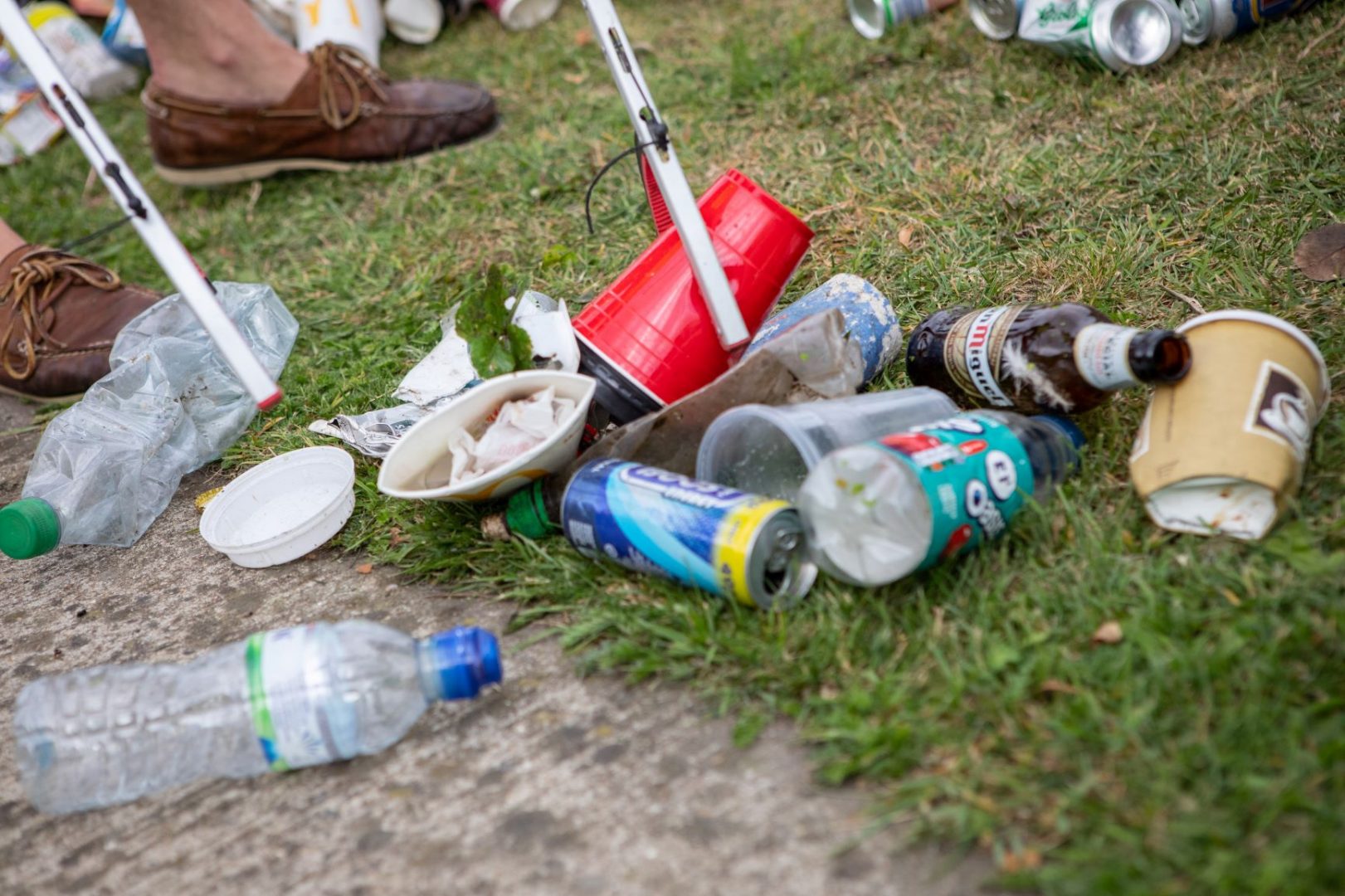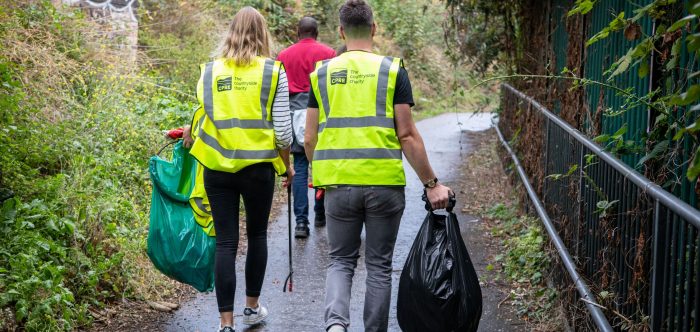Other relevant land

The responsibility for clearing litter from railways, parks, private land, businesses and educational institutions falls on the respective owner. These come under the responsibility of different authorities.
Rail
Network Rail has a responsibility to keep the operational areas known as the track-bed and all trackside land clear of litter. This responsibility extends to 100 metres beyond the platform.
Network Rail is also responsible for cleaning at and around 18 key railway stations. The remaining 2,500 stations are managed by train and tram operating companies, which are responsible for clearing litter for their respective stations.
At railway stations measures are taken, such as the use of CCTV, security, fencing, and encouraging contractors to remove debris and other materials upon completion of work, which assist in addressing the litter problem. Train operators may also work with the British Transport Police to prevent litter.
Parks
The clearance of litter from a park is the responsibility of the park owner. The following UK legislation can be applied to the clearance and/or enforcement against littering of parks.
Litter legislation applying to parks
- Environmental Protection Act 1990
- Clean Neighbourhoods and Environment Act 2005
- Anti-Social Behaviour, Crime and Policing Act 2014
- Other legislation: 2010 Waste (Wales) Measure, 2015 Wellbeing of Future Generations (Wales) Act
Responsibility for clearance
Councils: Section 89(1) of the EPA 1990 places a duty on certain bodies to ensure that land for which they are responsible is, so far as is practicable, kept clear of litter and refuse. There are many bodies listed, including but not limited to county, district, borough, and parish councils.
- County councils: Larger country parks are often owned and managed by the county council who have a responsibility to keep them clear of litter.
- District and borough councils: District and borough councils often own and manage smaller parks and have an obligation to clear litter from relevant land. Under section 87 of the EPA 1990, district and borough councils are also able to issue FPNs for littering.
- Parish councils: Often a parish council will own and manage a small park and consequently are responsible for the litter clearance. Under Section 88(9)(f) of the Environmental Protection Act 1990, a parish council is recognised as a ‘litter authority’ which can issue FPNs for littering. In practice, many parish councils are unaware that they have the power to issue FPNs or are insufficiently resourced to carry out this power. Under the Environmental Offences (Fixed Penalties) (Miscellaneous Provisions) Regulations 2007 anyone authorised by a parish council to issue FPNs must have completed a course approved by the secretary of state (typically such courses are provided by the Keep Britain Tidy Network)
Private landowners: Royal or National Parks are the Crown authorities’ responsibility and have a duty for litter clearance. NGOs and charities own large areas of land or parks for which they are responsible, such as the Forestry Commission, English Heritage, National Trust, RSPB.
Environment Agency: Has no specific duties to clear litter from parks.
Volunteers: There is no legal obligation on volunteers to clear litter and they do not have any enforcement powers. However, as it is a relatively safe environment, voluntary litter-picks often take place in parks.
Private land
There are few legal duties or mechanisms which prevent littering on private land. There may be restrictive covenants in the title deeds to property which indicate that the land is to be kept tidy and well-maintained at all times, including to be free of rubbish, litter, refuse, disposal containers, and so on. However, if these do not exist and the private land is not open to the public then it is at the landowner’s discretion to allow litter or not.
If the litter accumulates to such an extent that it causes a health hazard or a nuisance, the local council can intervene and request clearance.
One difficulty which may arise is where fly-tipped waste is deposited onto private land by third parties. In such circumstances, private owners must pay the costs of removing this rubbish from their property. This can be expensive, particularly where the waste requires specialised disposal (e.g. for the removal of asbestos). Costs can range from a few hundred pounds to over £1,000.
Also see redress for members of the public.
Businesses
Businesses often produce excess waste which can ‘escape’ from bins or storage areas, causing littering. Litter may also be dropped on business premises and land, and then be blown elsewhere. Consequently, Section 34 of the EPA 1990 assigns duties to businesses with respect to the waste that they produce, whether private or public sector entities.
Waste is clearly produced by a range of private and public sector entities: by private sector businesses such as shops, offices, factories and trades people (such as electricians, builders, glaziers and plumbers) and public sector services such as schools, hospitals and prisons, together with charities and voluntary and community groups.
Under Section 34(1)(b) of the EPA 1990, businesses have duties with respect to waste they produce. They must employ measures to properly contain their waste and prevent the escape of the waste from their control.
Also see redress for members of the public.
Educational institutions
Educational institutions have a duty to keep their land clear of litter under Section 89(1) of the Environmental Protection Act 1990: this duty is placed upon the governing bodies of designated educational institutions. The governing body will vary because:
- schools may be owned by the county council or privately owned
- colleges may be owned by the local authority or privately-owned
- all universities are independent bodies
All institutions should make proper provision for their waste and not allow it to become litter or allow litter to accumulate as a consequence of those using the premises.
Also see redress for members of the public.






